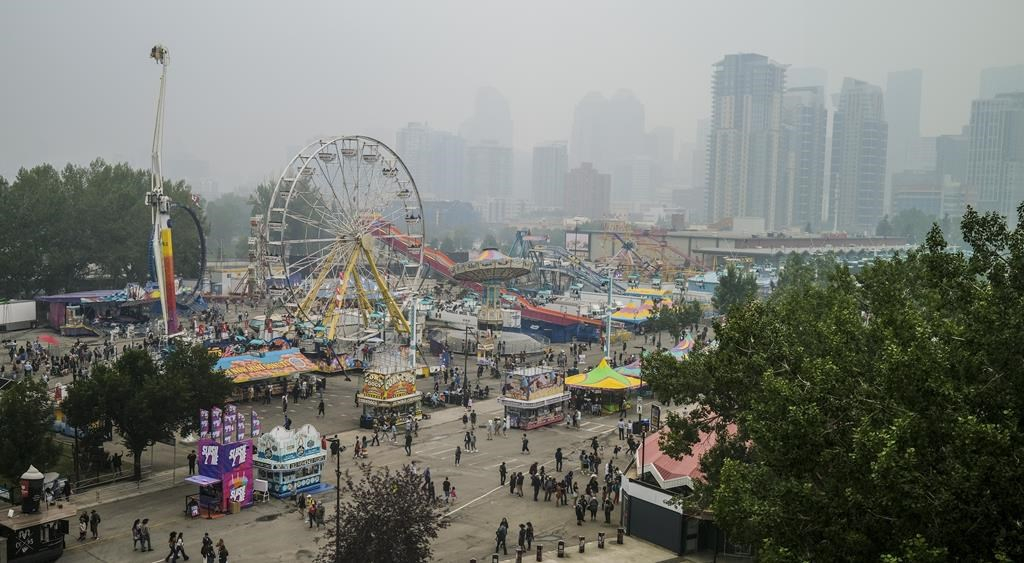British Columbia's government says accommodations for wildfire evacuees are filling up as the flames and smoke from numerous blazes spread, forcing more people from their homes and contributing to an eerie, acrid haze that's blanketing cities in neighbouring Alberta.
Emergency Management BC says in a news release that in many communities, accommodations are reaching capacity and it encourages anyone who self-evacuated to a larger community due to smoky conditions to consider returning home.
It notes that since smoky conditions shift and move, self-evacuating to another community won't guarantee a person's exposure will be reduced.
Evacuations continued in B.C. this weekend, with the Thompson-Nicola Regional District and the Regional District of Kootenay expanding orders for people to leave their homes.
Smoke from the fires in B.C., as well as others in northern Saskatchewan, Manitoba and northwest Ontario, has resulted in special air quality advisories across much of the West.
Environment Canada meteorologist Justin Shelley says that while smoke issues in Alberta last week were largely due to the B.C. fires, a wind change has meant most of the smoke in cities like Edmonton and Calgary is now coming from other wildfires in northern Saskatchewan.
"It's a multi-layered, smoky mess," Shelley said from Edmonton, explaining that wind directions differ depending on altitude, so smoke can be blowing from different provinces at different levels.
The BC Wildfire Service has said there are more than 300 fires burning. The Saskatchewan Public Safety Agency, meanwhile, said Friday that there were well over 100 active fires in that province.
Emergency Management BC asked people on Sunday to begin planning where they'd go if they're ordered to evacuate, and encouraged them to check with their insurance companies to see if their costs while on evacuation are covered.
"If possible, the best option would be to arrange to stay with family or friends, so commercial accommodations have capacity for evacuees who have no other option," the emergency agency said in Sunday's news release.
In B.C.'s Okanagan region where crews have been battling the out-of-control, 480-hectare Brenda Creek wildfire, authorities continued to encourage residents to be ready in case their power fails.
A news release from Central Okanagan Emergency Operations on Sunday said firefighters from local departments in the region are doing fuel mitigation around power poles while monitoring and protecting the BC Hydro transmission corridor through the fire area.
It said an aerial review of the transmission line did not show any damage, but the release warned the fire is still nearby and that crews "remain on standby and ready to respond at a moment’s notice."
This report by The Canadian Press was first published July 18, 2021.





Comments